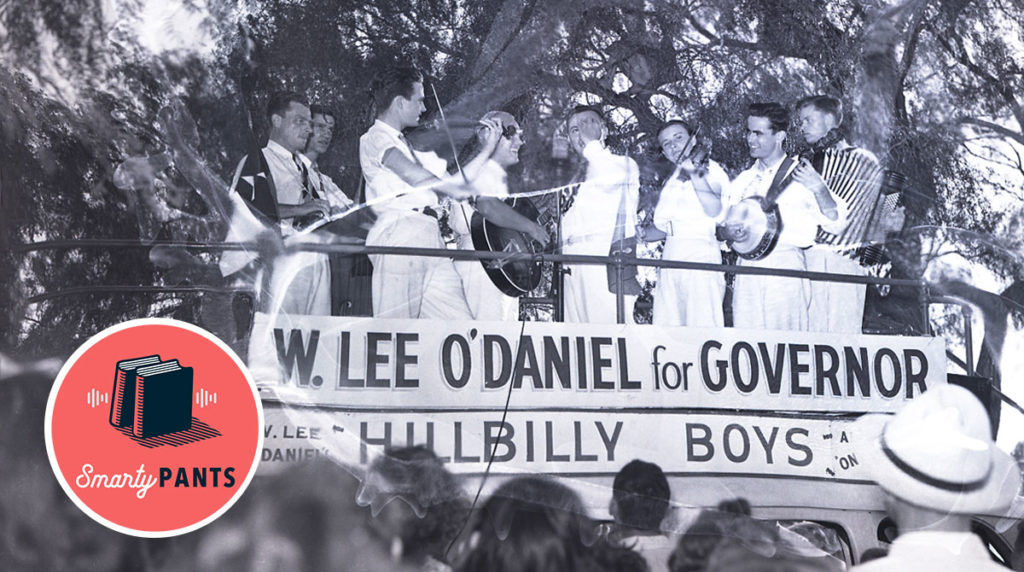The Banjo and the Ballot Box
How country music has been used on the campaign trail—and in political office

Love it, hate it, or refuse to listen to anything released after 1980—however you feel about country music, you can’t drive across the United States without hearing it. Even people who don’t appreciate the genre have been thinking about it lately, as the controversy over Lil Nas X’s exclusion from the Billboard country music charts has inspired discussion of country music, racism, and who gets to use trap beats on their tracks. It looked to a lot of people as if a genre that had traditionally celebrated outlaws and outsiders were locking its gates against a new kind of outsider. But as this week’s guest, the historian Peter La Chapelle, points out, none of this is new. Country music has been deployed to political ends since its birth in Appalachia. Nowhere is this more striking than on the campaign trail, where scores of politicians have used country music to appeal to voters. On the show, La Chapelle explains how fiddler-politicians and politician-fans have used this oddly flexible genre to advocate for the poor and dispossessed, fight for racial justice, fight against racial justice, lobby for gun rights, and articulate a whole range of sometimes contradictory positions.
Go beyond the episode:
- Peter La Chapelle’s I’d Fight the World: A Political History of Old-Time, Hillbilly, and Country Music
- For an exhaustive introduction to the stars of old school country—from Ernest Tubb to Loretta Lynn—check out our host’s favorite music show, the Cocaine & Rhinestones podcast, or follow the crowds to Ken Burns’s Country Music
- Read “Canon Fodder,” Shuja Haider’s impassioned critique of country music’s constant exclusion from “Best Of” album lists—and “The Invention of Twang,” his take on Lil Nas X (you can read Billboard’s defense of their decision to exclude Lil Nas X from the country charts here)
- For more on country music’s relationship with race (and racism), check out Charles L. Hughes’s book Country Soul: Making Music and Making Race in the American South
- And read “The Roots of Country Music,” Dahleen Glanton’s essay on the country music establishment’s attempts in the 1990s to honor black country musicians
- Listen to the Carolina Chocolate Drops, an old-time string band highlighting black country songs fronted by Rhiannon Giddens; Dom Flemons used to be a member
Tune in every week to catch interviews with the liveliest voices from literature, the arts, sciences, history, and public affairs; reports on cutting-edge works in progress; long-form narratives; and compelling excerpts from new books. Hosted by Stephanie Bastek. Follow us on Twitter @TheAmScho or on Facebook.
Subscribe: iTunes • Feedburner • Stitcher • Google Play • Acast
Download the audio here (right click to “save link as …”)
Have suggestions for projects you’d like us to catch up on, or writers you want to hear from? Send us a note: podcast [at] theamericanscholar [dot] org. And rate us on iTunes! Our theme music was composed by Nathan Prillaman. This episode features a song by the Downtown Mountain Boys recorded at KBOO and available at the Free Music Archives.

